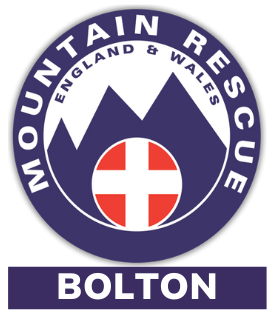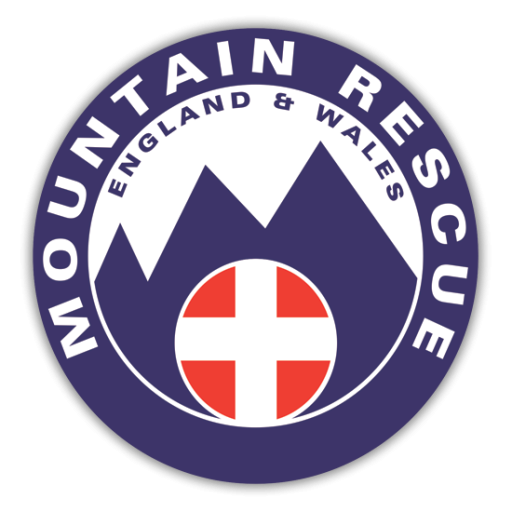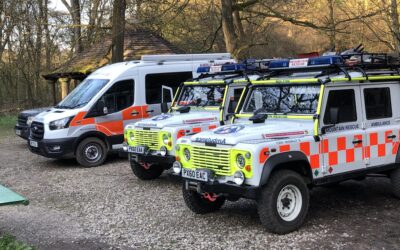Today our Team President Bob Hutchinson (joined Bolton MRT 1980) and Team Life Vice President Alan James (Joined Rossendale FRT 1967, founder member of Bolton MRT 1968 – current) attended the funeral of Doctor Neville Marsden, formerly of Rossendale Fell Rescue Team, now Rossendale and Pendle MRT.
Doctor Neville Marsden was the Medical Officer of Rossendale FRT, and the Registrar of First Aid Examinations of the Medical Sub Committee of the Mountain Rescue Committee of England and Wales, as was.
He played the central role in developing First Aid training, and specifically the area of diagnosis, that firmly laid the foundations for what is now known as the Mountain Rescue Casualty Care Course.
Neville was also the teacher to the Mid Pennine Mountain Accident Panel (now MPSRO) constituent team members, who attended (way in the past now) the (his) Joint MPMAP Mountain Rescue First Aid Courses / Diagnosis before First Aid Courses, and also the RFRT courses which Bolton MRT jointly attended.
In 1978 Doctor Neville Marsden published his excellent book, Diagnosis before First Aid – A manual for Emergency Care workers, the second Edition being published in 1985 (Our Team Leader still has his copy)
Amongst our current team membership, we have many members who have benefitted from Neville’s excellent and very comprehensive training in times long ago, including Neville acting as their Examiner on such courses, including:
- Team President Bob Hutchinson
- Team Life Vice President Alan James
- Team Leader Garry Rhodes MBE
- Geoff Seddon
- Mike Marsh
- DVSD Handler Dave Marsh
It must be said of course that the ultimate beneficiaries of Neville’s training has been not so much those who undertook such training, but those casualties upon whom such training aided.
Neville’s funeral was held at 11.20am at Burnley Crematorium, and according to Bob, it was “standing room only, packed to the entrance.”
Bob also stated it was great to see many of the Rossendale ‘Golden Oldies,’ present at the service including Peter Durst, Kip, Pat Lee and his wife Judith, Henry Stott, Steve Hatton, Doctor Chris Tonge, Dave Holland, Steve Howarth, Steve Garafalo, and many others.
Bob described the service as semi religious and very personal, ending with the exit song of ‘He’s my brother.’
After the service Bob and Alan (General) were kindly invited by the Rossendale ‘Golden Oldies’ to a restaurant for a warm and friendly reunion.
To those of us in Bolton MRT who remember Doctor Neville Marsden, we pass on our condolences.
The following is from the Facebook and website of Rossendale and Pendle MRT, honouring Doctor Neville Marsden, written by Peter Durst
Sadly, former team member Dr Neville Marsden passed away last month and we wish to offer his family, relatives and friends our deepest and most sincere condolences.
We would also like to take the opportunity to express our gratitude for the significant contribution that Dr Marsden made to our team and to Mountain Rescue nationally, as summarised by our President Peter Durst.
Dr Neville Marsden M.R.C.S., L.R.C.P., D.Obst. R.C.O.G.
Our Team was founded in 1963 by a small group of walkers, climbers & cavers most of whom were also members of the local “St John Ambulance”. For the next 10 years we struggled to establish the Team and, having not had any success in attracting the recruitment of a Team Doctor, we continued to rely on basic training via local St John Ambulance courses.
In 1973, on a Mid Pennine Panel joint exercise, the Team was criticised, during debriefing, for its first aid performance. There were extenuating circumstances for this but, without elaborating, it did nevertheless highlight a need for more advanced training. The focus was on misdiagnosis and I searched in vain for a suitable source of education, until Bryan Wilson introduced me to Neville. Over a series of meetings I explained our situation, and we agreed that there were many sources of tuition and training for treatment of identified injuries and medical conditions, but there was a big gap in training for a systematic approach to the diagnosis of those conditions as a prerequisite to treatment¹. Neville agreed to consider whether he could help us find a way to plug the gap and, after a week or so, came back and offered to design and deliver a course especially to cover our specific needs. “Manna from Heaven”!!
This was the first step in a 7 or 8 year process that resulted in a massive improvement in the Team’s casualty care capability, the organisation of a ‘ground breaking’ mass casualties exercise on Pendle involving 11 Rescue Teams², the introduction of a written exam in diagnosis for the Mid-Pennine Panel, the publication of Neville’s book (Diagnosis before First Aid – A Manual for Emergency Care Workers)³, and the use of our course as a basis for the development of the MREW casualty care qualification.
Throughout this period Neville, not only became our tutor and adviser, but also trained himself up to full team membership, became Chairman for a time in the mid 70’s, and was a major driving force in the establishment of a National exam for the MRC. In this latter role his contribution was very significant in overcoming the inertia, and resistance to National “dictation”, that was still prevalent at that time.
Throughout the Team’s 52 year’s existence many members have made sterling efforts in contributing to our progress, but only a handful have provided what may be described as unique and timely contributions that have greatly accelerated and consolidated the Team’s progression. Neville was one of those key figures in our history.
Thank you, Neville. May you rest in peace.
Peter Durst 2nd February 2016
Notes.
¹ Illustrating the recognition of the gap in source material here are two quotes from the forward (by Noel F. Kirkman, MD., F.R.C.S., MRC Chairman) in Neville’s book:-
“ – this book fills a vacant niche because of its fresh and occasionally unorthodox style and insistence of as good a diagnosis as possible in the field. This emphasis on diagnosis as a prerequisite for satisfactory first aid is highly commendable”
“Although primarily written for the active first aider, this book could be read with profit by physiotherapists and medical students in the early years of their courses. It is a welcome addition to the literature on the constantly growing problems of first aid”.
² The joint exercise on Pendle (Oct. 1974) was organised to test our progress from Neville’s lectures and took the form of a major aircraft disaster. Neville organised all the “casualties”; there were about 35 in total and the majority were concentrated in 3 major crash sites. Through several meetings and written briefs Neville defined every casualty’s condition and taught them how to act it out. He recruited three additional doctors to supervise the three crash sites and organised simulation and make up. Other teams involved were Bolton, South Ribble, Northern Rescue, Calder Valley, Holme Valley, Glossop, Edale, Ogwyn Valley, RAF Stafford, and RAF Leeming. The exercise started on Friday evening and the weather was absolutely atrocious, with rain and visibility less than 50 yards all night and throughout Saturday. One of the 3 sites was never found (we all know what Pendle can be like!), but twenty odd casualties were found, triaged, and evacuated. Despite the weather all the teams enjoyed it, learned a lot, and praised our team for the organisation.
³ Neville’s book was published in 1978 by Churchill Livingstone. (ISBN 0 443 01639 9), but is still worth studying. In his introduction, Neville suggests — “Treatment is adequately dealt with in numerous books on First Aid. However, treatment varies from time to time, whereas diagnosis does not.”



